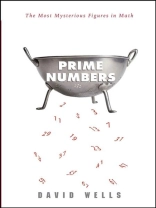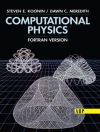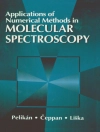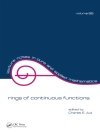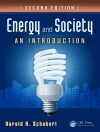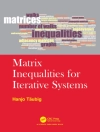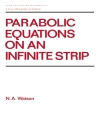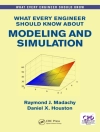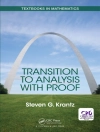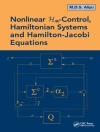A fascinating journey into the mind-bending world of prime numbers
Cicadas of the genus Magicicada appear once every 7, 13, or 17 years. Is it just a coincidence that these are all prime numbers? How do twin primes differ from cousin primes, and what on earth (or in the mind of a mathematician) could be sexy about prime numbers? What did Albert Wilansky find so fascinating about his brother-in-law’s phone number?
Mathematicians have been asking questions about prime numbers for more than twenty-five centuries, and every answer seems to generate a new rash of questions. In Prime Numbers: The Most Mysterious Figures in Math, you’ll meet the world’s most gifted mathematicians, from Pythagoras and Euclid to Fermat, Gauss, and Erd?o?s, and you’ll discover a host of unique insights and inventive conjectures that have both enlarged our understanding and deepened the mystique of prime numbers. This comprehensive, A-to-Z guide covers everything you ever wanted to know—and much more that you never suspected—about prime numbers, including:
* The unproven Riemann hypothesis and the power of the zeta function
* The ‘Primes is in P’ algorithm
* The sieve of Eratosthenes of Cyrene
* Fermat and Fibonacci numbers
* The Great Internet Mersenne Prime Search
* And much, much more
Содержание
Acknowledgments.
Author’s Note.
Introduction.
Entries A to Z.
abc conjecture.
abundant number.
AKS algorithm for primality testing.
aliquot sequences (sociable chains).
almost-primes.
amicable numbers.
amicable curiosities.
Andrica’s conjecture.
arithmetic progressions, of primes.
Aurifeuillian factorization.
average prime.
Bang’s theorem.
Bateman’s conjecture.
Beal’s conjecture, and prize.
Benford’s law.
Bernoulli numbers.
Bernoulli number curiosities.
Bertrand’s postulate.
Bonse’s inequality.
Brier numbers.
Brocard’s conjecture.
Brun’s constant.
Buss’s function.
Carmichael numbers.
Catalan’s conjecture.
Catalan’s Mersenne conjecture.
Champernowne’s constant.
champion numbers.
Chinese remainder theorem.
cicadas and prime periods.
circle, prime.
circular prime.
Clay prizes, the.
compositorial.
concatenation of primes.
conjectures.
consecutive integer sequence.
consecutive numbers.
consecutive primes, sums of.
Conway’s prime-producing machine.
cousin primes.
Cullen primes.
Cunningham project.
Cunningham chains.
decimals, recurring (periodic).
the period of 1/13.
cyclic numbers.
Artin’s conjecture.
the repunit connection.
magic squares.
deficient number.
deletable and truncatable primes.
Demlo numbers.
descriptive primes.
Dickson’s conjecture.
digit properties.
Diophantus (c. AD 200; d. 284).
Dirichlet’s theorem and primes in arithmetic series.
primes in polynomials.
distributed computing.
divisibility tests.
divisors (factors).
how many divisors? how big is d(n)?
record number of divisors.
curiosities of d(n).
divisors and congruences.
the sum of divisors function.
the size of ?(n).
a recursive formula.
divisors and partitions.
curiosities of ?(n).
prime factors.
divisor curiosities.
economical numbers.
Electronic Frontier Foundation.
elliptic curve primality proving.
emirp.
Eratosthenes of Cyrene, the sieve of.
Erdös, Paul (1913–1996).
his collaborators and Erdös numbers.
errors.
Euclid (c. 330–270 BC).
unique factorization.
&Radic;2 is irrational.
Euclid and the infinity of primes.
consecutive composite numbers.
primes of the form 4n +3.
a recursive sequence.
Euclid and the first perfect number.
Euclidean algorithm.
Euler, Leonhard (1707–1783).
Euler’s convenient numbers.
the Basel problem.
Euler’s constant.
Euler and the reciprocals of the primes.
Euler’s totient (phi) function.
Carmichael’s totient function conjecture.
curiosities of ?(n).
Euler’s quadratic.
the Lucky Numbers of Euler.
factorial.
factors of factorials.
factorial primes.
factorial sums.
factorials, double, triple . . . .
factorization, methods of.
factors of particular forms.
Fermat’s algorithm.
Legendre’s method.
congruences and factorization.
how difficult is it to factor large numbers?
quantum computation.
Feit-Thompson conjecture.
Fermat, Pierre de (1607–1665).
Fermat’s Little Theorem.
Fermat quotient.
Fermat and primes of the form x2 + y2.
Fermat’s conjecture, Fermat numbers, and Fermat primes.
Fermat factorization, from F5 to F30.
Generalized Fermat numbers.
Fermat’s Last Theorem.
the first case of Fermat’s Last Theorem.
Wall-Sun-Sun primes.
Fermat-Catalan equation and conjecture.
Fibonacci numbers.
divisibility properties.
Fibonacci curiosities.
Édouard Lucas and the Fibonacci numbers.
Fibonacci composite sequences.
formulae for primes.
Fortunate numbers and Fortune’s conjecture.
gaps between primes and composite runs.
Gauss, Johann Carl Friedrich (1777–1855).
Gauss and the distribution of primes.
Gaussian primes.
Gauss’s circle problem.
Gilbreath’s conjecture.
GIMPS—Great Internet Mersenne Prime Search.
Giuga’s conjecture.
Giuga numbers.
Goldbach’s conjecture.
good primes.
Grimm’s problem.
Hardy, G. H. (1877–1947).
Hardy-Littlewood conjectures.
heuristic reasoning.
a heuristic argument by George Pólya.
Hilbert’s 23 problems.
home prime.
hypothesis H.
illegal prime.
inconsummate number.
induction.
jumping champion.
k-tuples conjecture, prime.
knots, prime and composite.
Landau, Edmund (1877–1938).
left-truncatable prime.
Legendre, A. M. (1752–1833).
Lehmer, Derrick Norman (1867–1938).
Lehmer, Derrick Henry (1905–1991).
Linnik’s constant.
Liouville, Joseph (1809–1882).
Littlewood’s theorem.
the prime numbers race.
Lucas, Édouard (1842–1891).
the Lucas sequence.
primality testing.
Lucas’s game of calculation.
the Lucas-Lehmer test.
lucky numbers.
the number of lucky numbers and primes.
“random” primes.
magic squares.
Matijasevic and Hilbert’s 10th problem.
Mersenne numbers and Mersenne primes.
Mersenne numbers.
hunting for Mersenne primes.
the coming of electronic computers.
Mersenne prime conjectures.
the New Mersenne conjecture.
how many Mersenne primes?
Eberhart’s conjecture.
factors of Mersenne numbers.
Lucas-Lehmer test for Mersenne primes.
Mertens constant.
Mertens theorem.
Mills’ theorem.
Wright’s theorem.
mixed bag.
multiplication, fast.
Niven numbers.
odd numbers as p + 2a2.
Opperman’s conjecture.
palindromic primes.
pandigital primes.
Pascal’s triangle and the binomial coefficients.
Pascal’s triangle and Sierpinski’s gasket.
Pascal triangle curiosities.
patents on prime numbers.
Pépin’s test for Fermat numbers.
perfect numbers.
odd perfect numbers.
perfect, multiply.
permutable primes.
?, primes in the decimal expansion of.
Pocklington’s theorem.
Polignac’s conjectures.
Polignac or obstinate numbers.
powerful numbers.
primality testing.
probabilistic methods.
prime number graph.
prime number theorem and the prime counting function.
history.
elementary proof.
record calculations.
estimating p(n).
calculating p(n).
a curiosity.
prime pretender.
primitive prime factor.
primitive roots.
Artin’s conjecture.
a curiosity.
primordial.
primorial primes.
Proth’s theorem.
pseudoperfect numbers.
pseudoprimes.
bases and pseudoprimes.
pseudoprimes, strong.
public key encryption.
pyramid, prime.
Pythagorean triangles, prime.
quadratic residues.
residual curiosities.
polynomial congruences.
quadratic reciprocity, law of.
Euler’s criterion.
Ramanujan, Srinivasa (1887–1920).
highly composite numbers.
randomness, of primes.
Von Sternach and a prime random walk.
record primes.
some records.
repunits, prime.
Rhonda numbers.
Riemann hypothesis.
the Farey sequence and the Riemann hypothesis.
the Riemann hypothesis and ?(n), the sum of divisors function.
squarefree and blue and red numbers.
the Mertens conjecture.
Riemann hypothesis curiosities.
Riesel number.
right-truncatable prime.
RSA algorithm.
Martin Gardner’s challenge.
RSA Factoring Challenge, the New.
Ruth-Aaron numbers.
Scherk’s conjecture.
semi-primes.
sexy primes.
Shank’s conjecture.
Siamese primes.
Sierpinski numbers.
Sierpinski strings.
Sierpinski’s quadratic.
Sierpinski’s ?(n) conjecture.
Sloane’s On-Line Encyclopedia of Integer Sequences.
Smith numbers.
Smith brothers.
smooth numbers.
Sophie Germain primes.
safe primes.
squarefree numbers.
Stern prime.
strong law of small numbers.
triangular numbers.
trivia.
twin primes.
twin curiosities.
Ulam spiral.
unitary divisors.
unitary perfect.
untouchable numbers.
weird numbers.
Wieferich primes.
Wilson’s theorem.
twin primes.
Wilson primes.
Wolstenholme’s numbers, and theorems.
more factors of Wolstenholme numbers.
Woodall primes.
zeta mysteries: the quantum connection.
Appendix A: The First 500 Primes.
Appendix B: Arithmetic Functions.
Glossary.
Bibliography.
Index.
Об авторе
DAVID WELLS is the author of numerous books of mathematical puzzles and general math, including You Are a Mathematician, also available from Wiley. He has contributed articles to The Mathematical Intelligencer and The Mathematical Gazette. Wells lives in London, England.
